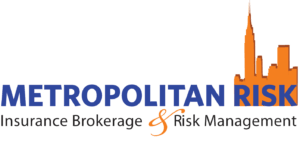Your operations are as a General Contractor, but the contract you are looking to enter (or have entered) references to your organization as a Construction Manager. Is there an issue here?
Although at first glance you may see similarities between a General Contract (“GC”) and Construction Manager (“CM”), their difference in operations, and in turn exposures, are vastly different. Understanding the roles of a General Contractor (“GC”) and Construction Manager (“CM”) and their corresponding interests in a job is important to fully grasp the risk associated with each.
What is a General Contractor and their role?
A General Contractor is typically hired after the owner has a finalized design in place (the design-bid-build model). When bidding on the job, a General Contractor submits complete plans in accordance with the pre-designed specifications. In hiring a General Contractor, the Owner in turn is trusting the General Contractor’s network of employees (direct labor) and subcontractors to perform the work at the job site. The General Contractor will then oversee the day-to-day activity of all direct labor and subcontractors at the job site. The General Contractor’s incentive is to complete the job under budget to maximize their profit.
What is a Construction Manager and their role?
In contrast to a General Contractor, a Construction Manager’s services contract directly with the owner, typically for a fixed fee basis. The Construction Manager’s relationship with the Owner is more of a collaborative/consultative partnership. This brings a different relationship when compared to that of a General Contractor with Ownership since the Construction Manager is usually involved in the project from the start (the design-build model). The Construction Manager has input on the design phase of the project and works directly with the subcontractors during this phase. With this input comes a potential exposure to Professional Liability (E&O).
Defining your organization’s role early in the project is paramount, and a key factor to ensure you are protecting the organization. The contract will be the first place all parties look to when an incident occurs, and you want to be sure that your operations are clearly defined, and within the scope of your insurance coverage.
For more information on the scope of purchasing an insurance program for your project, contact one of our risk advisors at 914-357-8444 or click here to schedule a consultation meeting.



 Photo by Dylan Gillis on Unsplash
Photo by Dylan Gillis on Unsplash